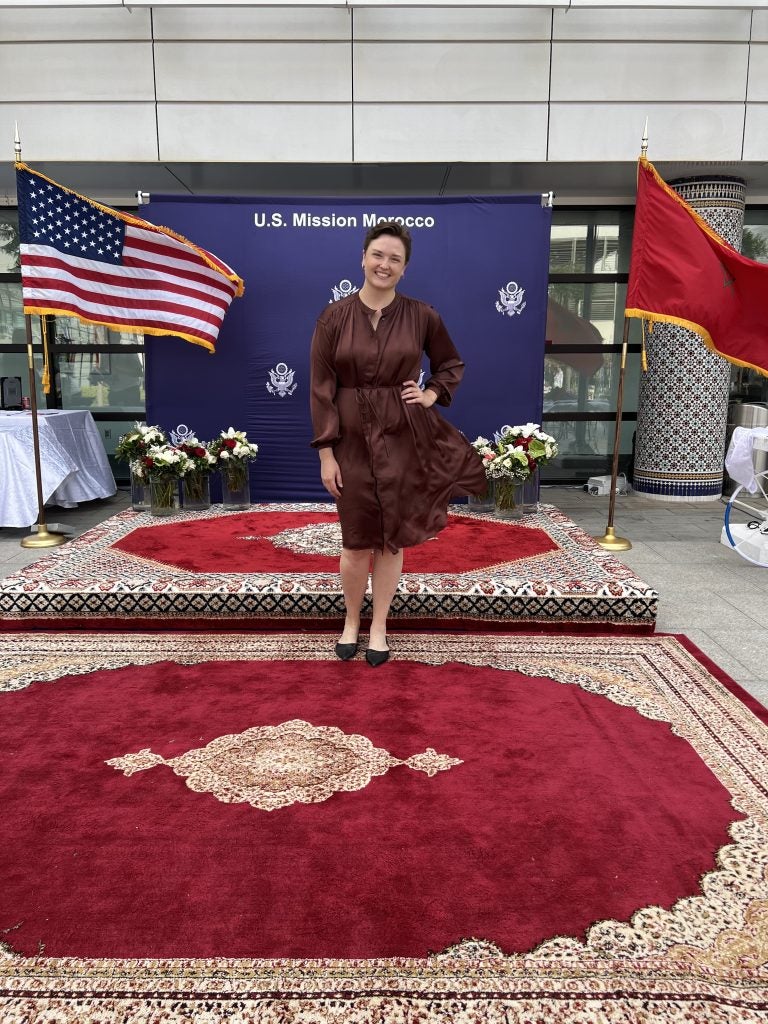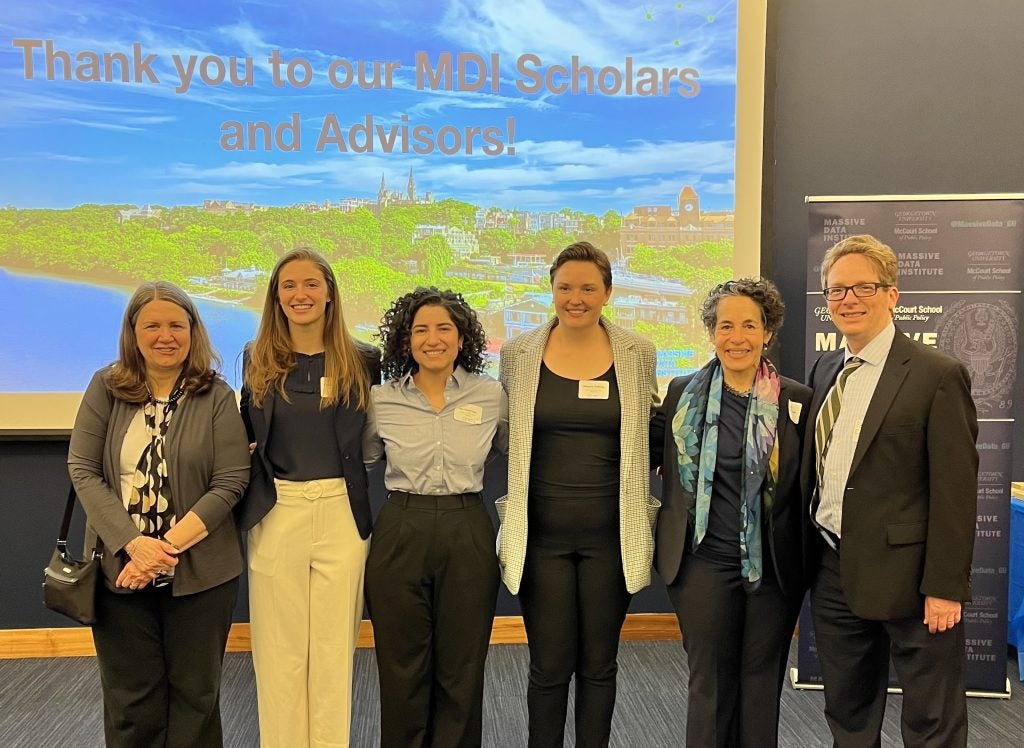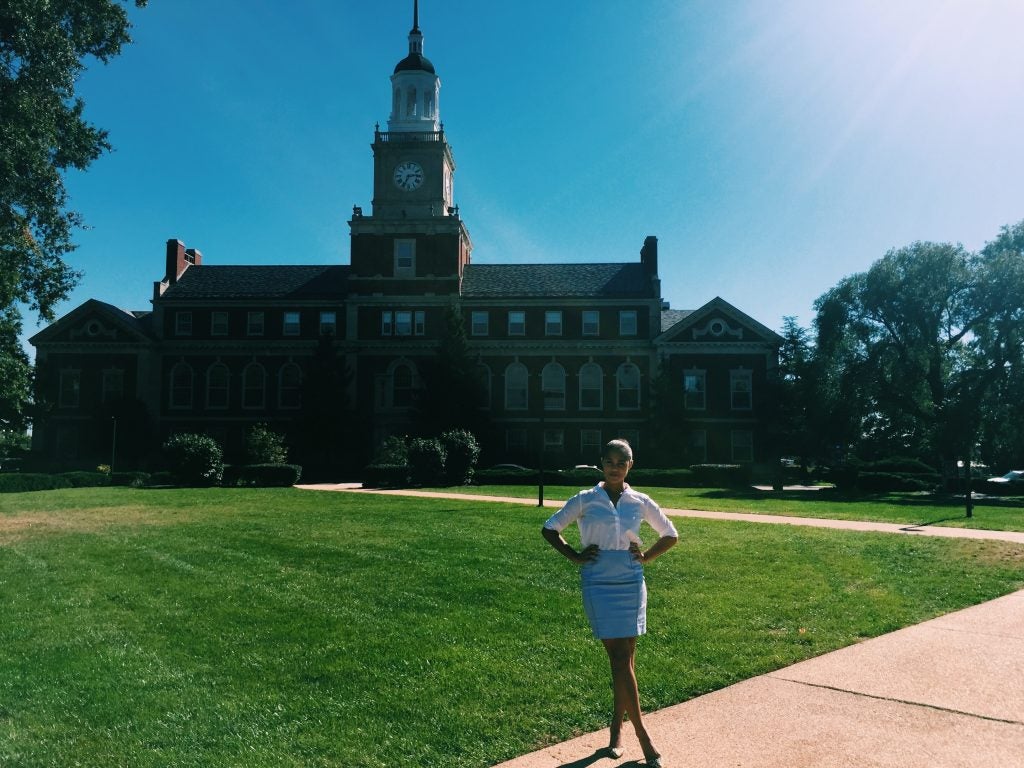Georgetown graduate student builds a career integrating international relations, data science and public policy
Maggie Sullivan (MS-DSPP’24) is pushing the limits of new technology to translate real-world outcomes into policies that better serve marginalized communities at home and abroad.
Maggie Sullivan (MS-DSPP’24), an international development specialist and emerging data scientist, has already lived and worked in three countries. She is well acquainted with the critical role that data plays in shaping U.S. foreign policy and the real-world impact of those policies on marginalized communities around the world.
As a soon-to-be-graduate of the McCourt School of Public Policy’s Master of Science in Data Science for Public Policy (MS-DSPP) program, Sullivan hopes to bridge the gap between gathering insights from data and making, and communicating, policy decisions that positively impact people’s lives.
While completing her undergraduate studies in international affairs at Western Kentucky University, Sullivan began her work with the U.S. Department of State through the highly competitive U.S. Foreign Service Internship Program, a merit and needs-based opportunity for undergraduates to experience diplomacy first-hand, in Washington, DC, and at a U.S. Embassy or Consulate abroad. She was one of 34 students selected among hundreds of qualified candidates.

Maggie Sullivan, pictured with her parents, Joe Sullivan (left) and Laura Sullivan (right), graduated from Western Kentucky University in 2018.
As a U.S. Foreign Service intern, Sullivan kickstarted her career in international policy, dedicating seven weeks to refugee admissions in the Bureau of Population, Refugees, and Migration (PRM). There, she found data analytics, a discovery that changed her career trajectory.

Maggie Sullivan spent a semester studying abroad in Meknes, Morocco, as an undergraduate. She returned to the country six years later to work with USAID.
“One of my initial tasks was developing a Tableau dashboard for PRM to help the team better understand where refugees were being resettled and thus, how to make more strategic funding decisions,” said Sullivan. “It was data visualization for impact.”
The following year, Sullivan spent 10 weeks working at the U.S. Embassy in Sarajevo, Bosnia, in the Political Section, followed by five months teaching English in Bulgaria. Upon returning home to the U.S., Sullivan began working with the U.S. Agency for International Development (USAID), including two years as a program analyst supporting an interagency strategy on foreign aid for vulnerable children and families. Before starting at McCourt, she spent six months as a Communications Specialist for USAID in Rabat, Morocco.
At USAID, Sullivan reflected on what she wanted to do next with her career and the skills she needed to acquire to move forward.
“I saw how the government collects data, and I wanted to learn how to better utilize it,” she said. “I didn’t have the quantitative and data analysis skills I would need to be successful, so I turned to the McCourt School without hesitation.”
Using technology in service of the common good
Sullivan had not taken a math class since high school and initially struggled to adjust to the quantitative rigor of the MS-DSPP program. With the support of her professors and the comradery of her fellow MS-DSPP classmates, Sullivan excelled.
I advise women entering the STEM fields not to count themselves out. All of my data science professors have been women; I love that about this program.
Maggie Sullivan (MS-DSPP’24)
With renewed confidence in her abilities, Sullivan delved deeper into the intersection of technology and public policy by getting involved in the Georgetown Technology Policy Initiative (GTPI) and engaging in discussions in her Public Interest Tech class, taught by Emily Tavoulareas , chair of Georgetown University’s Tech & Society initiative. Outside of the classroom, she is actualizing data for impact with the McCourt School’s Massive Data Institute (MDI) and the Beeck Center for Social Impact + Innovation . She is also working with Rebecca Johnson , assistant professor and affiliate of MDI, on a new research project that leverages advances in computing to create a first-of-its-kind systematic database of school board meeting deliberations.

As an MDI Scholar, Maggie Sullivan works with faculty, researchers and external partners, such as the U.S. Department of Health and Human Services, on cutting-edge research projects at the intersection of data science and public policy.
As GTPI’s communications chair, Sullivan is charged with developing creative content that explains the science behind data buzzwords —“everything from AI to machine learning.”
“Many tech policy experts are talking past technologists, using different terms and definitions. I’m prepared now to help translate that work for different audiences,” she said.
“I want to help people understand that technology can be used to develop innovative solutions to the complex problems of today — all in service of the common good.”
This story is a part of the McCourt School’s Student Spotlight series , which showcases inspiring stories about emerging policy leaders who are making an impact in their academic pursuits, extracurricular activities and communities.


